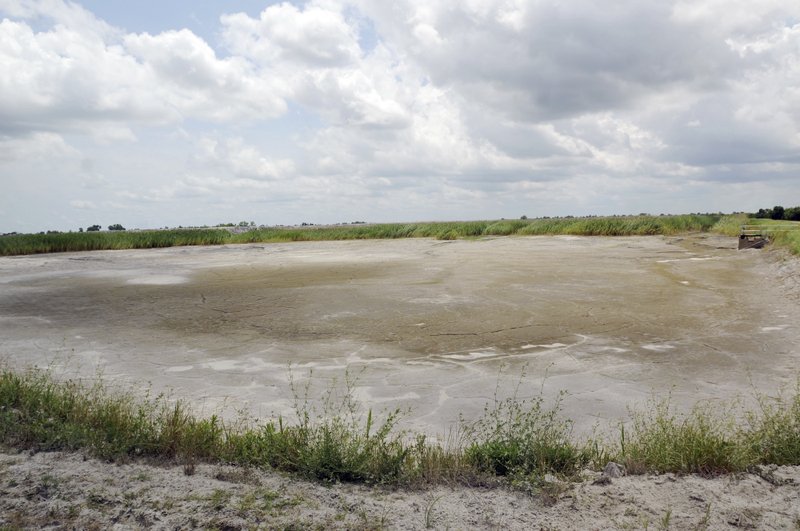The North Carolina Department of Environmental Quality announced Wednesday that 25 Duke Energy coal ash basins across the state have been deemed an “intermediate” risk, along with eight high priority sites identified under state law.
The high-risk ponds must be dug up and closed by 2019 and the same must be done at the intermediate ponds by 2024.
The designation is significant because it changes the status of some basins from low risk. Under that classification, Duke would have the option to dewater the basin and then cap the remaining ash, and the utility would have until 2029 to reach that end.
Duke Energy CEO Lynn Good said in a press conference on Wednesday that the energy giant disagreed with the decision from DEQ to reclassify some of the basins.
“We do not believe the Coal Ash Management Act intended a point-in-time ranking that excludes the best and most current information,” Good said.
Good said that the classifications announced Wednesday would exclude new information that Duke may discover to safely close the basins.
“If DEQ’s recommendations are allowed to stand without review and possible adjustments based on additional new information, the state will have chosen the most extreme closure option, costing customers the most money and decades of disruption without additional, measurable environmental benefit,” Good told reporters.
Good was arguing the cap-in-place method that is available to Duke if the sites were to remain classified as low risk is as environmentally safe and cheaper than excavating the ash and moving it to a lined landfill.
The announcement from DEQ said that the agency was asking for the General Assembly to allow the reconsideration of the classification in 18 months. Secretary of the environmental department Donald van der Vaart said in a release that the reevaluation period is being asked for to allow for a reassessment after repair work is completed by Duke.
DJ Gerken is the managing attorney for the Southern Environmental Law Center’s Asheville office. He said in a statement the classifications announced Wednesday should remain in place.
“This administration’s determination to bail out Duke Energy knows no end and, rather than stand up for impacted communities, DEQ now wants the law changed to give Duke Energy a do-over in 18 months.”
Good said the reassessment is the best way to determine the effectiveness of the work Duke Energy is doing.
“We are continuing, for example, to complete facility improvement repairs; we have 200 wells that we are continuing to drill around our basins to provide additional information,” Good said. “I think it only makes sense to allow all of that work to be considered in developing final rankings for the basins.”
Good said that repair work could be completed in the next six months. Duke hopes that completion could cause the classification of some facilities to drop from intermediate to low risk, which would reopen the option to cap-in-place.
“I was at our Marshall station just a few weeks ago,” Good told reporters, “and some of the metrics on what would be required to excavate our Marshall station – it’s something like 800,000 truck loads.
“And if you considered that you can move about 100 trucks a day, 365 days a year, it would take you 20 years to move all of that ash.”
Good said those numbers call the 2024 deadline associated with the intermediate basins into question.
“We believe there would be significant risk to meeting that deadline for a number of our sites.”
Before the reclassification, Duke had maintained it could meet the proposed deadlines.
Good added the cost could grow exponentially through excavating and moving the ash as well.
“I do think it’s fair to say, with a constrained time frame and with the amount of material that we’re talking about, it would be significantly more expensive,” Good said. “And when you consider that the estimate that we’ve developed so far for our accounting records is in the range of $4 billion, it would be greater than that.”
The statement from the Southern Environmental Law Center said, “It’s past time for Duke Energy to clean up its leaking, unlined coal ash sites that threaten North Carolina’s communities, rivers, and drinking water sources.”
The proposed classifications from DEQ will become final in 60 days. Good said the company would push for clarifications before that deadline passes.


